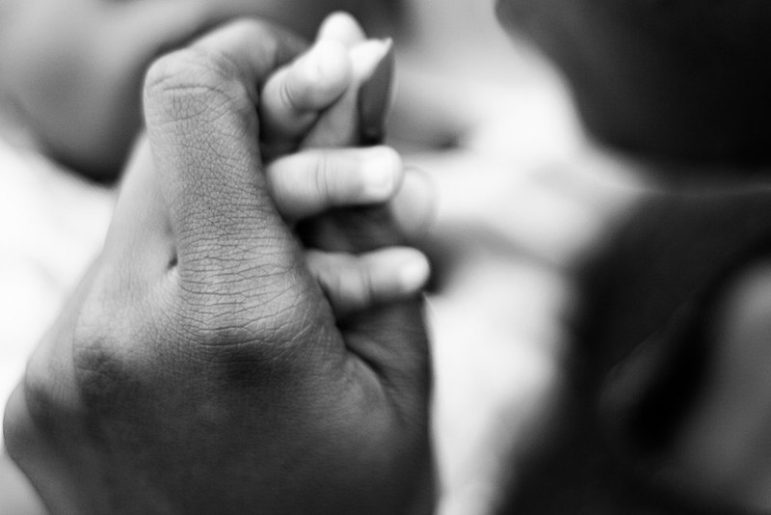
Maternal and newborn care inequalities for underserved women of color were on full display when Amber Isaac, an expecting Black mother, died during induced labor after calls to her medical team at the Bronx’s Montefiore Hospital were ignored regarding her low platelet levels. Doctors later learned she developed HELLP syndrome, a life threatening pregnancy complication, which was likely treatable if she had access to care sooner.
Sadly, Amber’s experience is not an anomaly. These inequalities have existed in New York City for decades. For instance, Non-Hispanic Black women are eight times more likely than non-Hispanic White women to die from pregnancy-related causes, and babies born to Black and Puerto Rican mothers in New York City are three times more likely to die in their first year of life than babies born to non-Hispanic White mothers.
Worldwide movements are underway to create a better post-pandemic world that includes a redefined justice system, food security, improved housing, enriched education opportunities, and more. At this time, we must also reimagine maternal and newborn care so that both are delivered more equitably and holistically.
First, to achieve this, hospitals can adopt policy that incorporates holistic elements into maternity wards that have shown to improve maternal outcomes.These hybrid maternity wards would resemble more home-like environments — allowing mothers freedom of movement and choice — but also be equipped with both medical and non-medical staff, including doctors, midwives, doulas, and family members. Such outcomes can increase the time baby and Mom spend together, overall improving the experience. Increased telemedicine checkups following birth can also increase access to care.
Research shows that this hybrid model would be a huge win for expecting mothers. For example, a study published by the Citizens’ Committee for Children demonstrates that to improve maternal and infant health outcomes, every woman must have continuous, high-quality, dignified healthcare during both the prenatal and postnatal stages, and have the resources necessary to support herself and her family. This includes increasing the access to doulas, midwives, family members, telemedicine, home visiting programs, and breastfeeding support.
On a scale from holistic to medical, society often focuses exclusively on the medical aspect of birth. While the medical aspect is important, we must recognize that birthing goes well beyond the physical act. Having access to all aspects of care can result in better health outcomes for mom and baby, as well as increased satisfaction in the birthing and breastfeeding experiences, thereby reducing healthcare costs.
 CityViews are readers’ opinions, not those of City Limits. Add your voice today!
CityViews are readers’ opinions, not those of City Limits. Add your voice today!
Second, we must build on the city’s efforts to increase access to doulas in the prenatal stage, which would help address many of the maternal health disparities underserved women face. For example, doulas, which provide emotional, physical, and educational support, can detect childbirth complications as they develop and communicate them to the mother’s medical team. Likewise, they help mothers bond with their newborns, teach them safe sleeping habits, and begin the breastfeeding process, which are critical to long-term, positive health outcomes.
Third, wellness can be achieved through access to expert knowledge. To this end, hospitals should provide all new parents the option to attend a one-hour pediatrician-led class during the postpartum stay, a cost-effective method proven to increase confidence and decrease anxiety. By making this resource available immediately following childbirth, new parents stand to gain critical information about the early stages of their child’s development, which may otherwise be inaccessible to them.
Failing to transform the delivery of maternal and newborn healthcare services will preserve the status quo, perpetuating the inequalities for underserved expecting parents. Inaction on this front will be fraught with consequences for our city, causing exorbitant healthcare costs, less educational attainment, shorter life expectancies, and increased mental health inequalities.
Despite being one of the most resourceful nations in the world, the United States fares among the worst for maternal health outcomes, and we can begin to change that here in New York City. Communities impacted by reproductive injustice deserve this and now is the time to reimagine.
Assemblywoman Carmen De La Rosa represents Northern Manhattan and cares deeply about the issues of maternal mortality. She was orphaned as a baby after her biological mother passed while experiencing birth complications in the Dominican Republic. She subsequently immigrated to the U.S. with her adoptive parents.
Kristin R. Anderson, Ph.D. is a neuroscience postdoctoral research fellow and member of Sci4NY, a science policy group that brings scientists and government policymakers together to enhance the wellbeing of New York City.
Shaun Abreu is a tenants’ rights attorney who represents low-income families from Northern Manhattan in Housing Court.








